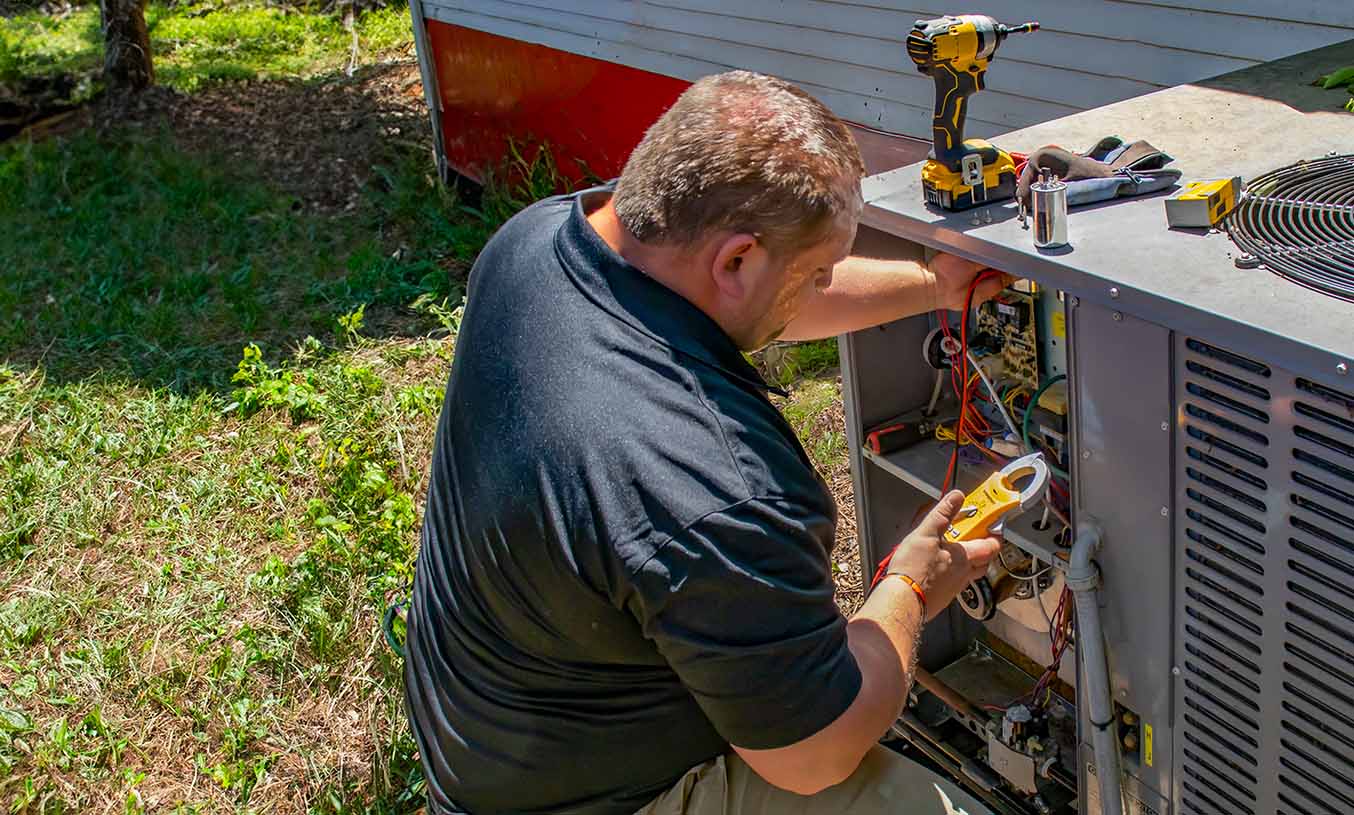- HEP
- Energy Efficiency

 Energy Efficiency
Energy Efficiency
Energy Efficiency | Air Conditioning | Heating and Air Conditioning | Cowan
Feel the Cowan difference with HEP’s energy-efficient heating and air conditioning solutions—designed to keep your home perfectly comfortable while trimming utility bills. Our certified technicians evaluate your space, recommend ENERGY STAR® equipment, and install it with precision, so you enjoy whisper-quiet cooling, healthier indoor air, and the peace of mind that comes from lower energy consumption.
Whether you need a smart thermostat upgrade, seasonal tune-up, or a complete system replacement, we make every step easy. Flexible financing, 24/7 emergency service, and meticulous post-installation testing ensure you stay cool through Tennessee’s hottest days. Schedule your free efficiency consultation today and discover how a greener home can also be a happier one.
FAQs
How can a high-efficiency air conditioner lower my utility bills in Cowan’s climate?
Cowan summers are hot and humid, so your air conditioner can account for 50–60 % of your summer electric bill. A high-efficiency unit uses a variable-speed compressor, ECM blower motor, and advanced refrigerant management to remove the same amount of heat while drawing far less electricity. For every 1-SEER point you move up, you can expect roughly a 5 % drop in cooling costs. Upgrading from an older 10-SEER system to a modern 18-SEER2 model can trim annual cooling expenses by 40 % or more, often paying for itself in 4–6 years at current TVA electricity rates.
What SEER2 rating should I look for when replacing my AC unit?
As of 2023, the minimum efficiency for new split-system air conditioners sold in Tennessee is 14.3 SEER2. For true energy savings, we recommend considering 16–18 SEER2 models. They balance upfront cost and long-term savings, deliver quieter operation, and usually qualify for utility rebates. Ultra-high-efficiency 20-plus SEER2 systems offer even greater savings but make the most financial sense in larger homes or when paired with smart zoning controls.
Are there local rebates or tax incentives for installing energy-efficient air conditioning in Cowan?
Yes. The Tennessee Valley Authority’s EnergyRight program typically offers $150�–$300 per ton for installing 16 SEER2 or higher equipment through a participating quality-contractor network (which we belong to). In addition, the federal Inflation Reduction Act provides a 30 % tax credit—up to $600—for qualifying high-efficiency central air conditioners and up to $2,000 for heat pumps. Utility rebates can be taken at the time of purchase, while federal credits are claimed when you file IRS Form 5695.
How often should I schedule maintenance to keep my system running efficiently?
Plan on professional tune-ups twice a year—once in spring for cooling and once in fall for heating. During a visit we clean the outdoor coil, check refrigerant charge, inspect the blower wheel, tighten electrical connections, and calibrate the thermostat. A clean, correctly charged system can operate up to 20 % more efficiently and is far less likely to suffer a mid-summer breakdown. Between visits, replace or wash your air filter every 30–60 days and keep 2-ft of clearance around the outdoor unit.
Is a heat pump a good alternative to a traditional AC in our area?
Absolutely. An air-source heat pump cools your home exactly like a high-efficiency AC, but it can also run in reverse to heat during Cowan’s mild winters. Modern cold-climate heat pumps maintain 100 % heating capacity down to about 25 °F and stay efficient even in Tennessee’s occasional teens. Switching to a heat pump can cut total HVAC energy use by 30–40 %, and pairing it with your existing gas furnace as a dual-fuel system gives you the flexibility to choose the cheapest energy source at any temperature.
What factors determine the right size energy-efficient air conditioner for my home?
Proper sizing is based on a Manual J load calculation—not square footage alone. We measure window area, insulation levels, orientation, air leakage, number of occupants, and even local shading. An oversized unit short-cycles, wastes energy, and fails to control humidity; an undersized unit runs constantly and shortens its lifespan. After the load calculation, we’ll present options that meet the required BTU capacity at different efficiency levels so you can compare first-cost versus lifetime operating savings.